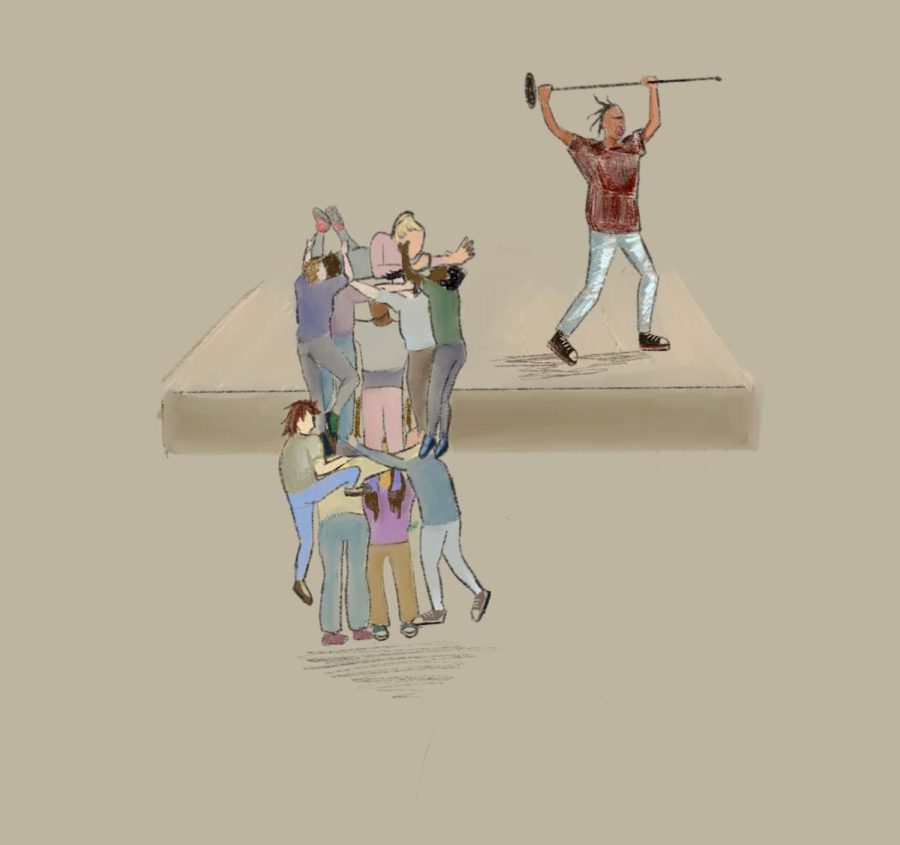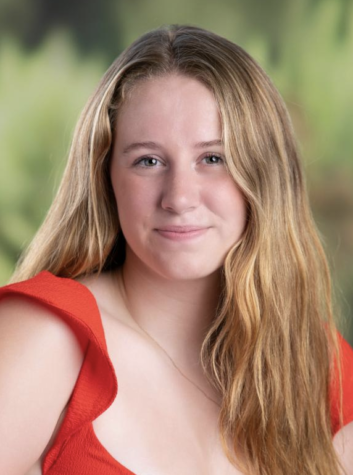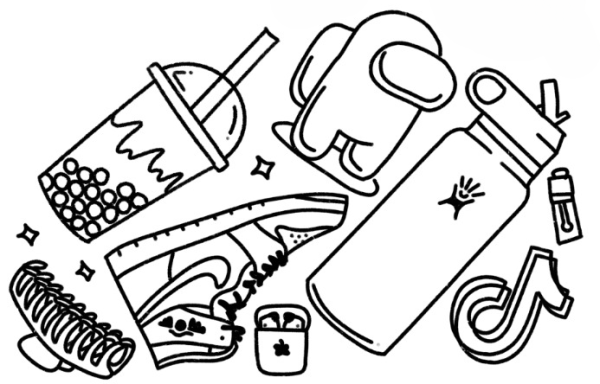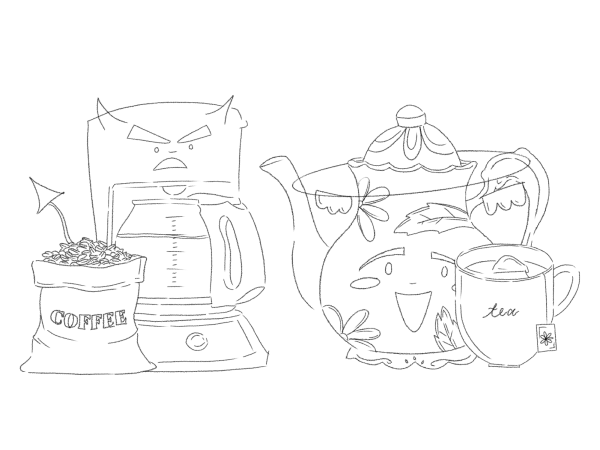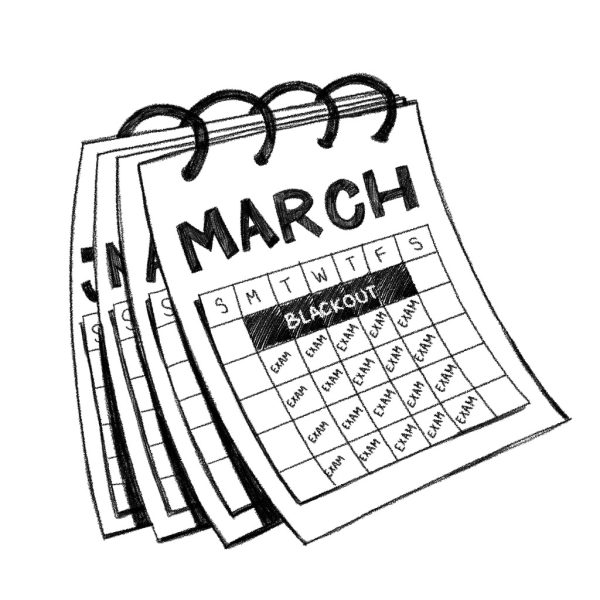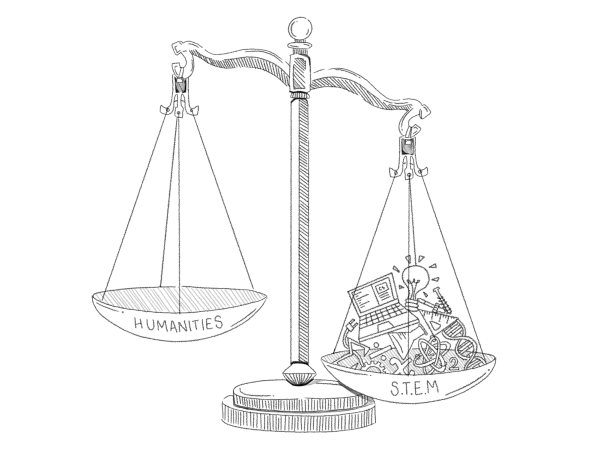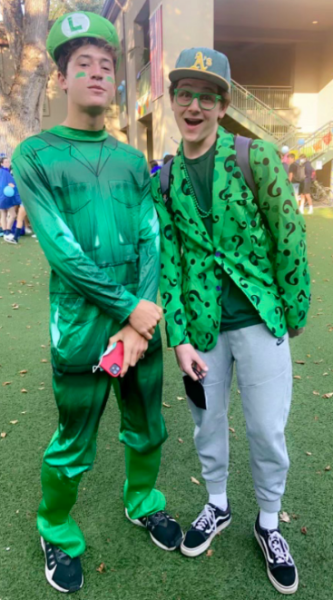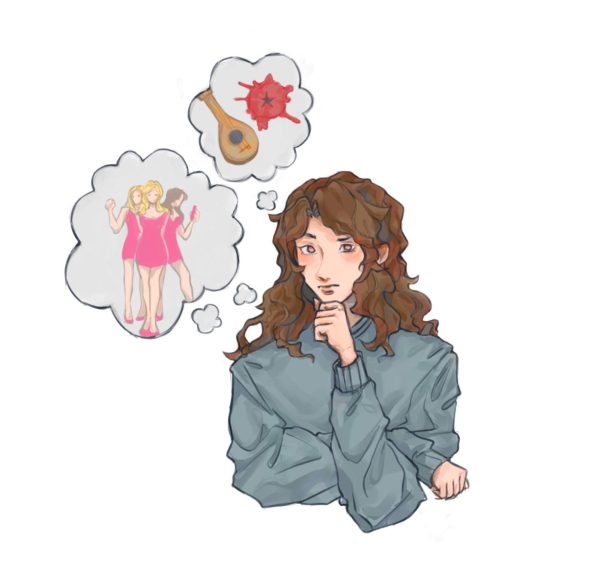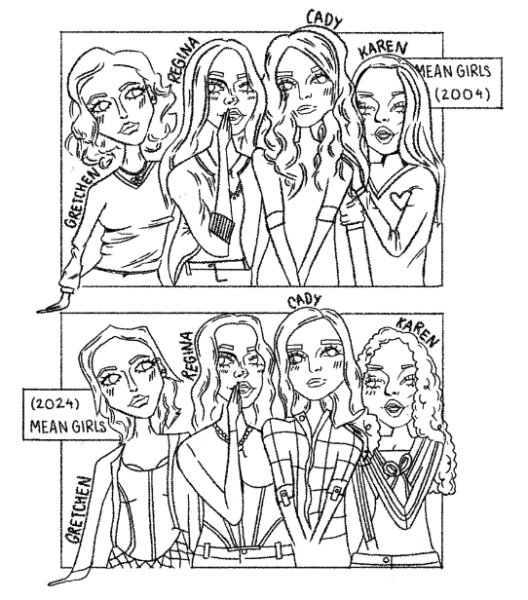Travis Scott Could, and Should, Have Stopped his Concert
Due to excessive crowd-surging at Travis Scott’s music festival, Astroworld, dozens of concertgoers were injured and 10 were killed. Staff illustration: Dorinda Xiao.
January 19, 2022
Travis Scott’s music festival, Astroworld, was held from Friday, Nov. 5 to Saturday, Nov. 6 at NRG Park in Houston, Texas. The festival featured more than fifteen artists and was sold out, with about 50,000 people in attendance, according to CNN.
On the first night of the festival, chaos broke out in front of Scott’s stage. The crowd surged, injuring dozens and ultimately killing ten people, according to Forbes. A crowd surge is when large groups of fans rush towards the stage, often trampling people in their path. The Associated Press explains that crowd surges are dangerous because they can result in people being squeezed to the extent of no longer being able to get oxygen.
The chaos of the night was due to the overcrowding and poorly equipped security staff. According to CNN, at least 3,000 concertgoers were not scanned into the concert. According to a CNN interview with Darius Williams, a security guard hired for the festival, the security staff was not equipped to deal with the number of people who were budgeted to attend in the first place. Williams quit the morning of the festival with concerns about his own safety. He felt that the amount of security and police officers present was not sufficient, and he felt that his training was inadequate.
Williams was also aware of the typical chaotic atmosphere of Scott’s concerts, and he heard that the audience planned to storm the gates. Scott has a history of egging-on crowds. He has been arrested twice for encouraging crowds to rush security barriers and is known for giving raucous performances, according to the Huffington Post. Williams was hired with the purpose of keeping people safe, yet he did not feel safe himself. His concerns demonstrate how unsafe the festival was for civilians.
In addition to security personnel being ill-prepared to deal with the large crowds present at Astroworld, the festival management did not prepare for the event of a crowd surge, according to the Guardian. There were protocols in place to deal with an active shooter, a bomb, and even threats of terrorism, but not a protocol for a crowd surge.
According to CNN, the concerns about the safety of the crowd size were known and acknowledged by the officers that night, as early as 5 p.m. The festival went on despite this concern and over 260 injuries were treated throughout the night, but no treatment was specified on the security logs until 9:18 p.m. when a “crush injury” was noted. At 9:52 p.m., the mass casualty incident (MCI) was declared by city officials.
Scott’s attorneys are claiming that because he was up on a stage, looking into lights and having music blasting in his ears, he didn’t see any issues in the crowd and thus should not be held accountable for not stopping the concert, according to CNN.
Even if their claims are true, concert organizers, risk directors and security personnel should have been able to access the situation and see the danger at hand.
When artists decide to host large, high-energy events, they assume partial responsibility for the well-being of their fans. People standing close together, bouncing up and down and dancing because they are excited to hear the music of their favorite artist is, unfortunately, a pretty high-risk event.
By agreeing to host a concert or festival and advertising it to fans, artists are advertising a positive experience. While they are not responsible for making sure each fan has a good time, they are responsible for the safety of their fans. In failing to do so, Scott failed his fan base.
Stopping the concert would not have taken much effort on Scott’s part. He had the power: he was on the stage, and he had the microphone. All he had to do was stop singing and ask his fans to move aside. This would have allowed medical personnel to get to the injured people or even prevent the injuries from happening in the first place.
This incident left over a dozen hospitalized. According to Forbes, the death toll is now ten. Among the dead are many young people, including two high school-aged kids: a 14-year-old and a 16-year-old. In response to the losses of life at Astroworld, planners of Rolling Loud, another festival planned for Dec. 10 to Dec. 12, have created a policy that prohibits people under the age of 18 from attending. Now that one festival has created such a policy, others may follow suit. Astroworld’s impacts did not end after the ten lives were lost; they will continue to affect the ways that we view concerts and our ability to attend them.


